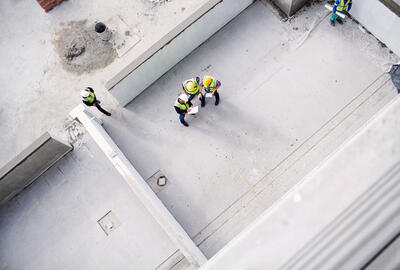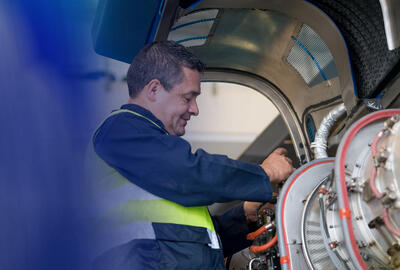Fancy being an aircraft engineer but feel in need of a little more understanding of what the role actually entails? Well, read on, and our guide will give some insider knowledge on the career and the day-to-day reality of the job.
Aircraft engineer job description.
All aircraft have to meet stringent local and international airworthiness standards in order to be able to operate, so need constant maintenance and upkeep, which task falls to the aircraft engineers. The constant growth in the demand for air travel and increasingly stringent regulations, as well as the drive to create more energy efficient, ‘greener’ aircraft, means the demand for good aircraft engineers has never been higher and is likely to remain strong.
An aircraft engineer job demands logical thinking and acceptance of responsibility.
Those interested in aircraft engineer jobs should not be the type to shy away from responsibility, as the team of engineers assigned to an aircraft are essentially the people who say whether it is fit to fly or not, keeping it maintained as airworthy. As such, aircraft engineers need to be able to think quickly and analytically, communicate well with all levels of colleagues, and explain problems (and solutions) clearly and concisely.
They should also be able to keep calm under pressure in emergencies and to follow legal procedure to the letter. Successful aircraft engineers will not only understand both local and international aviation regulations, they will also attain on-the-job licences for specific areas of work, such as radar systems or aircraft structures.
Maintenance required on day-to-day basis 24/7.
Aircraft engineers will be engaged on both the day-to-day checking and maintenance of aircraft as well as the emergency diagnosis and repair of unexpected faults that occur in flight or on the ground. On an every day basis, planes need their engines, bodies and all mechanical and electrical systems checked, maintained and serviced, with minor repairs implemented, and meticulous records being kept of all work carried out.
Pilots, or other operating staff, may report problems that need to be checked, sometimes within a rapid time frame due to short turnaround schedules. Parts will have replacement schedules that need to be adhered to for legal reasons, and engineers will be expected to proactively keep on top of these requirements.
Aircraft engineers will also be called upon in emergency situations when aircraft have developed faults or breakages that render them no longer airworthy. Such situations could arise both on the ground - if a serious fault is found during a routine inspection, for example - or even in the air, requiring an emergency response. This may require working outside of a regular shift pattern, if troubleshooting a stricken plane is required immediately, when stranded on a runway, for example, or if it is stuck at the wrong airport after an emergency landing.
Aircraft engineering is a varied and fulfilling role for the right person, someone who thrives on detail as well as the challenge of solving engineering problems with immediate practical application.





